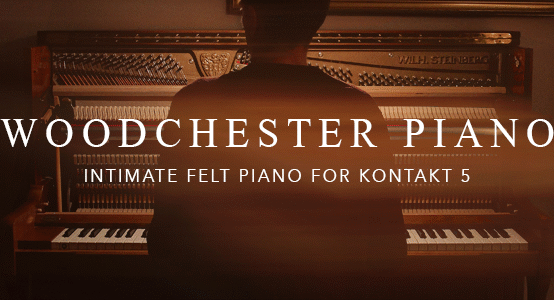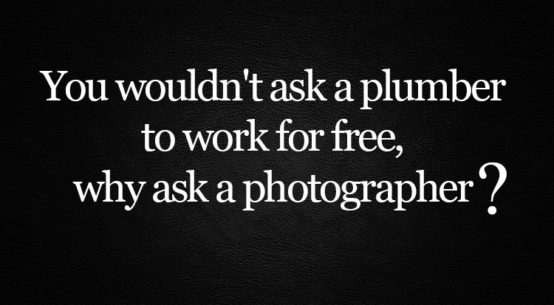
 Sam Hughes speaks to excellent composer James Gosling. James studied composition with John Woolrich and Peter Wiegold, and piano with Thalia Myers at the University of London and later, with the help of scholarships from Endemol UK and the Musician’s Union, he completed his masters in ‘Music for the Screen’ at the National, Film and Television School in Beaconsfield.
Sam Hughes speaks to excellent composer James Gosling. James studied composition with John Woolrich and Peter Wiegold, and piano with Thalia Myers at the University of London and later, with the help of scholarships from Endemol UK and the Musician’s Union, he completed his masters in ‘Music for the Screen’ at the National, Film and Television School in Beaconsfield.
After graduating from the NFTS, James went on to assist multi award-winning composer Rob Lane, working with him on numerous projects which include among many others HBO’s mini-series John Adams, Joe Wright’s emmy nominated Charles: The Power and the Passion, and Tom Hooper’s Brian Clough biopic The Damned United. This working relationship with Rob ultimately led to a collaboration composing and producing the score for the BBC’s flagship fantasy-adventure series Merlin, and it’s successor Atlantis.
James currently splits his life between the UK and France, and having recently completed work on Corin Hardy’s debut feature The Hallow for Occupent Entertainment, he is currently working on Lego’s recently announced animation series Nexo Knights.
Thanks for speaking with us James, we know you’re a busy guy!
No problem, thanks for being interested!
Now before we discuss anything else, tell us about how your journey into music composition began?
It began as a fascination with the piano. As a child I would always love to tinkle whenever I got the opportunity. My mum was a teacher and as a boy I would go from my school to hers and wait until she finished, her day being longer than mine, and for the majority of this time I’d sit at the school piano and just, well, tinkle. Eventually my mum and nan joined forces and bought an old piano and paid for lessons for me, and so it began.
What would you consider the biggest turning point in your career?
Well, it would have to be getting accepted into the film music course at the National Film and Television School in the UK. I remember reading somewhere that previous graduate and composer, Trevor Jones described the place as the cornerstone of his career, and that is very much the case to date from my point of view too, if not the entire foundation.
So would you say anything in particular has been the most challenging so far?
I think the most challenging aspect of this job and industry is the amount of ground that needs covering in short amounts of time. Certainly when you’re just starting out the blank page and a looming deadline can be extremely daunting, but you soon learn methods and means to tackle it, but at first it can be extremely challenging/terrifying.
Is there a project you are most proud of?
I would have to say The Hallow, it being my first feature and also my first major project working independently. Seeing how well it is being received, and having seen it in all its glory a few weeks ago at the Sitges Film Festival, and also having recently been awarded a Golden Skull for best musical score at the Screamfest Film Festival (personal plug intended!), I am really very proud of the final result.
Where do you usually draw your inspiration from?
It’s difficult to nail it down to one thing in particular. Sometimes just sitting at the piano and improvising will produce a starting point. Other times listening to other people’s music can spark something. But normally it’s while playing with ideas that other ideas arrive. Having just Googled it, it turns out it was Thomas Edison who first coined the phrase ‘1 percent inspiration, 99% perspiration’. He was talking about the genesis of genius at the time, and while I don’t pretend to be one of those, in terms of sourcing inspiration, to my mind the same holds true – it’s always while sweating away at something when suddenly and almost unexpectedly the light bulb moments arrive.
What was it like composing for BBC’s Merlin that must have been a fantastic project to be a part of? Any highlights in particular?
Merlin was indeed a fantastic project to be a part of, and it was key to developing the requisite skills as a film and TV composer, being the first significant project that I got a chance to compose for. Before that I had assisted composer Rob Lane, and had worked with him on numerous shows as assistant/orchestrator/programmer etc but Merlin was the first time I was handed the responsibility of composing, and it was a real introduction via the deep end to the pressures of producing quickly under extreme time pressures. It was a great canvas to work on too – fantasy adventure has such a broad range of dramatic requirements, and it was great to have had a significant hand in something that became such a firm family favourite.
So let’s talk about The Hallow, how did you first get involved in the project, was there a demo/audition process?
Yes, there was a demo process. At first I had been introduced to director Corin Hardy via a mutual friend, and then when the time came I was given the opportunity to pitch for the film which involved scoring an 8 minute section and sending it back, and fortunately for me I hit the right notes and was offered the job.
Do you enjoy the horror genre in terms of watching and/or composing for?
I certainly enjoyed composing for it – the score plays such a key part in creating the atmosphere and tension after all. And I loved playing with the dissonant sound worlds that the horror genre requires. In terms of watching, to be honest I couldn’t describe myself as being particularly a horror fan over and above any other genre. Like most people I think, I can be engaged and entertained by any genre of film. If it’s well conceived and well written and then well executed then any genre can be engrossing.
Did you try to do anything unique with the score in terms of your process?
Well I’m not sure if unique in its purest sense would be the correct word. I decided early on that an approach which combined classical and electronic elements was the way I wanted to go, but I couldn’t accurately describe that as being particularly unique – it is ground that has already been fairly well trodden. But it does always throw up unusual and interesting sound worlds, and consequently the result always ends up unique in that sense.
What were you given to work on to begin with and how much creative input do you have on the direction of the score?
To answer to the first part I came on board when the film was pretty much at final cut stage. To the second I had a lot of creative input. It was very much a continual process of dialogue, experimentation and collaboration between myself and Corin.
Tell us about the tech you use, what main hardware/software do you compose with?
I use Logic Pro on a Mac Pro as my main workstation which is linked to a high performance PC Server which houses most of my key sample libraries. And I use Vienna Ensemble Pro to communicate between the two. Kontakt as my main sampler.
So what lies in the future for you now?
Well, I am currently working on a new animation series called Nexo Knights which is being created by Lego and which continues until early next year and possibly beyond. Other than that nothing else is currently on the table but you never know what’s around the corner of course which is the way I like it.
Finally, if you could have a drink with anyone, alive or dead, who would it be?
This is a tough one. One person who springs immediately to mind is Christopher Hitchens. I love to read him, and to watch him speak or debate. Sadly he died in 2011 at the relatively tender age of 62, but he is someone who I will always admire for his erudition, integrity and wit. Though I might feel a little intimidated in his presence and would probably prefer to drink while he talked if at all possible. If selecting from the world of film music it would have to be John Williams as it was his work which first inspired my interest in music for film, growing up as I did in the heyday of filmmaking for young boys – films like Star Wars, Superman, Indiana Jones and ET. I remember on many occasions placing the speakers of my dad’s sound system on the living room floor and turning them to face each other with just enough room for my head to rest in between, then setting the volume to ‘bleed’ and listening to the ‘Star Tracks’ album my dad had bought and which was 90% John Williams. And if I could meet him and could ask one question it would be if, putting modesty aside, he thinks it is genius or perspiration? If the latter he must have a first class rehydration program.
Thanks again James, we look forward to hearing more of your work!
Links
Official
A massive thanks again to James Gosling, and thanks to you for reading! We hope you enjoyed the interview, check out more over at our Interviews page and don’t miss a thing by signing up to our Monthly Newsletter!




